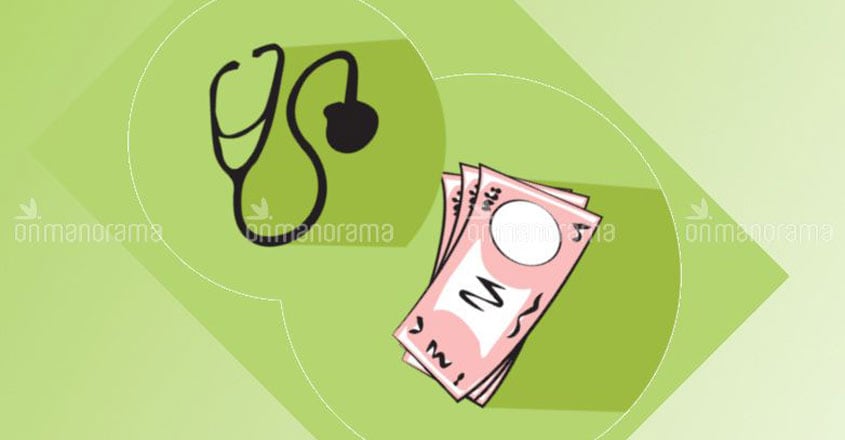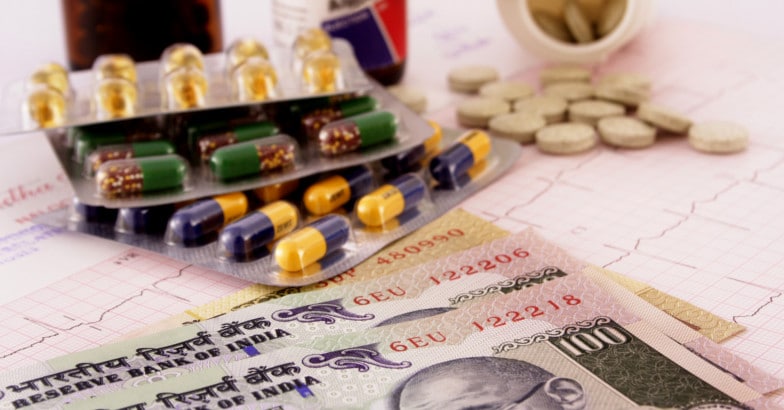All you need to know | Modi's Ayushman Bharat

Mail This Article
Prime Minister Narendra Modi on Sunday launched what is believed to be the world's largest government-funded healthcare programme – Ayushman Bharat. The initiative to give medical insurance cover to 50 crore Indians will roll out from September 25 – the 102nd birth anniversary of Bharatiya Jana Sangh founder Deendayal Upadhyay.
The Pradhan Mantri Jan Arogya Abhiyaan (Ayushman Bharat) programme was announced in the 2018 Union Budget.
Ayushman Bharat-National Health Protection Mission (AB-NHPM), also called “Modicare”, aims to provide a coverage of Rs 5 lakh per family annually, benefiting more than 10 crore poor families.
AB-NHPM will subsume the on-going centrally sponsored schemes - Rashtriya Swasthya Bima Yojana (RSBY) and the Senior Citizen Health Insurance Scheme (SCHIS).
The states and union territories selected for the pilot run of the Mission include Chhattisgarh, Uttarakhand, West Bengal, Chandigarh, Himachal Pradesh, Daman and Diu, Nagaland, Manipur, Haryana and Andhra Pradesh.
Beneficiaries
The scheme aims to target poor, deprived rural families and identified occupational category of urban workers' families, 8.03 crore in rural and 2.33 crore in urban areas, as per the latest Socio Economic Caste Census (SECC) data, and will cover around 50 crore people.
AB-NHPM will cover medical and hospitalisation expenses for almost all secondary care and most of tertiary care procedures. AB-NHPM has defined 1,350 medical packages covering surgery, medical and day care treatments including medicines, diagnostics and transport.
How it would help the poor
• There is no restriction on family size, age or gender and all members of eligible families as present in SECC database are automatically covered.
• No money needs to be paid by the family for treatment in case of hospitalization.
• All pre-existing conditions are covered from day one of the policy. The benefit cover will include pre and post hospitalization.
• Benefits of the scheme are portable across the country and a beneficiary covered under the scheme will be allowed to take cashless benefits from any public/private empanelled hospitals across the country. You need to carry any prescribed ID to receive treatment at the hospital.
Implementation
The initiative consists of two major elements:

1. the National Health Protection Scheme that provides cashless treatment to patients.
2. Wellness centres that will provide primary care to the patients.
According to the officials, as many as 22 states have preferred to run the scheme on "trust model". States would need to have State Health Agency (SHA) to implement the scheme.
The Centre has allocated about Rs 10,000 crore for the project. The Health Ministry has launched a formal process to empanel public and private hospitals to achieve universal health coverage under the programme.
For the success of its flagship health coverage scheme, the government is heavily dependent on the private sector as it covers 70 per cent of the country's hospitals. A government-sponsored health programme will come as a major boost for the private hospital sector in India.
In partnership with NITI Aayog, an IT platform will be made operational for the Mission,which will entail a paperless, cashless transaction.
What is Ayushman Mitra?
All empanelled hospitals under the Mission will appoint an 'Ayushman Mitra' to assist patients coming to the health facility and avail the packages under the scheme.

Around one lakh Ayushman Mitras will be deployed at both private and government hospitals. The Health Ministry has signed a pact with the Skill Development Ministry for the recruitment of 1 lakh 'Ayushman Mitras'.
(With inputs from agencies)

